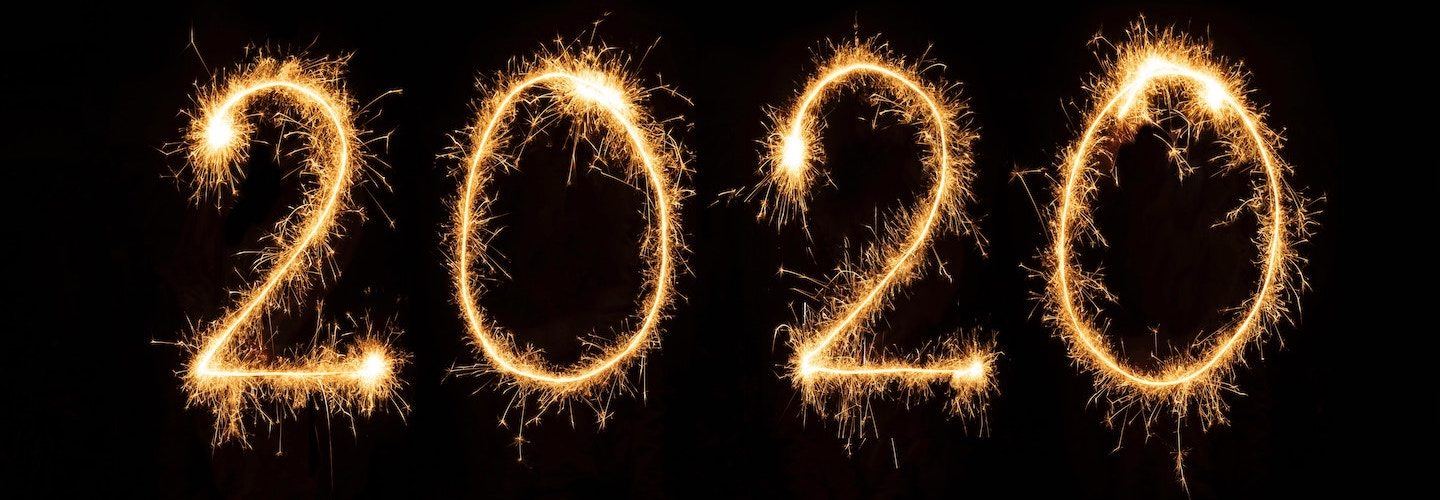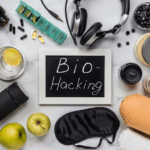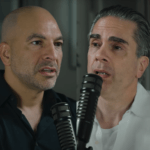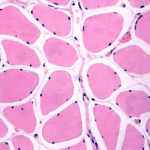I’m not one for New Year’s resolutions. In fact, I don’t ever recall making one, except in January 1997.* My view is: any date is a good date for a change, if it’s the right change.
But a couple of unrelated events over the past few months have led me to view 2020 as a year to implement some new routines around my mental and emotional health.
I read (and then reread) Ryan Holiday’s exceptional book Stillness is the Key (I’ve interviewed Ryan, so look for this podcast soon). It really resonated, especially the second time, as I was in a place to be more willing to hear the message: no matter how busy or productive we are, and frankly, the busier and more productive we aspire to be, the more we need periods of true stillness. Furthermore, there is no better place to find stillness than in nature. To that end, walking (in nature) with zero agenda—not doing so to “get a workout” or “see something” specific—may be one of the best tools for finding this elusive state.
As I read Ryan’s book, I realized how kinetic my life has become and, more troublesome, how uncomfortable I felt with doing absolutely nothing.
I have largely viewed my solitary passions, primarily archery and driving, but historically cycling and swimming, as all I needed to distance myself from work. But I have come to see that while those activities bring me staggering joy, they are not pure recreation, as I am relentless in my desire to improve in them. That desire, while not a bad thing, per se, makes it difficult to find stillness in them. It’s hard to be still when you are keeping score.
As I think about ways to build on the tools that have helped me so far, such as meditation, I realize an additional practice is in order. Heck, I’m even contemplating getting back in the water for one hour per week just to swim without any notion of a pace clock or split time or even the vaguest idea of how many laps I’ve swum.
As a funny aside, when I was learning to swim, I recall my close friend and med school roommate, Matt McCormack, explaining to me that the key to swimming fast is finding still water to push against. This Newtonian concept spoke to my physics brain so well that I always returned to it and even drew physics diagrams in my swim journals to look for better ways to find still water. Matt and I would constantly joke that one day I would write a book called In Search of Still Water. Well, maybe one day I will…
§
Since I get asked often, I thought I’d also share my plans for change, with respect to the other “big 3” lifestyle (hard to type that word without cringing) factors:
Nutrition: This year I am going to change my fasting regimen from 7 days of water-only fasting per quarter to 3 days of water only per month. I’ll be kicking off my January fast tonight, as a matter of fact, and if you’re interested you can follow my progress on Instagram. Unrelated to my fasting plans, one of my goals for this year is to lose 7 pounds, a somewhat arbitrary goal, but the more time I spend in a go-kart, the more I realize how dropping a few el-bees will make me a lot faster. It’s tough keeping up with the 14-year olds. Seven pounds seems like the right number to simultaneously satisfy two criteria: 1) enough to matter in the kart, and 2) a reduction that seems achievable in a sustainable manner. This target would still have me weighing 10-11 lb more than when I was most recently a cyclist (circa 2012-2014), but I do think it will be a lot of work for me to get and stay there.
How do I plan to achieve this? In my case, I think it will come down to being consistent with the following:
- No snacking (even “healthy” snacking), especially after dinner.
- Stop eating food off my kids’ plates. I noticed I have been doing this a lot more recently. Seems like a vestige of the “never throw out food” mantra many of us grew up on. But it means I’m eating far more than I need to, and it’s often more stuff like pasta, which I’d prefer to save for when I’m in Italy.
- Maybe consider a week of keto each month. For reasons I’ll speculate on another time, my body responds so favorably to a ketogenic diet that I probably ought to be on one most of the time. Truthfully, though, I just can’t do it indefinitely, so maybe I need to do more frequent keto sprints.
Exercise: I’m going to bump up my zone 2 (for an explanation of what this is, check out this podcast) from 3 or 3.5 hours/week to 4 hours/week. That’s the main addition. I’ve also got my daughter joining me for two of those hours each week, which makes it much more fun. She’s positively hooked on me checking her blood lactate levels after she rides to be sure she’s hit her wattage targets spot on. The other elements of exercise—strength, stability, and anaerobic performance—I’ll continue to push on as I did in 2019. In particular, I’m probably most excited about my progress on deadlifts, which has been helped greatly courtesy of Beth Lewis, who has forced me to do one workout per week of light straight-bar deadlifts in exceptionally strict form. So, I deadlift “heavy” each week with the trap/hex bar (also with a revised and stricter form, helped greatly by the new-found ability to access my hamstrings thanks to the straight bar), and light (i.e., never above 175 lb) with the straight bar. I film each and every set and review the film weekly with Beth. I’ll expand on this later, but re-learning how to deadlift has been a monumental part of my progress this year, and I’m more and more excited about how that benefit seeps into every other dimension of my life. I’m also excited to continue my journey through a process called dynamic neuromuscular stabilization or DNS, something I started working on in 2018 with the guidance of Michael Stromsness and Michael Rintala. DNS has had a greater (positive) impact on my body than anything I have ever tried to implement. I will cover this topic in greater depth in podcast form this year and I’m writing about it in my book, also. If you follow me on Instagram, you’ll also see that I post videos of movements and exercises from time to time.
Sleep: The biggest change in my sleep over the past few months, which I plan to stick with, is basically moving to an earlier bedtime and wake-up time. It’s not uncommon for me to go to bed at 8 pm and wake up at 4 am. I find it’s very important to be as consistent as possible with this. Now, on a weekend I might push to 9 to 5, but no more than 10 to 6. And as I type this email on a Saturday morning, well, it’s 4:30 am. I just find that golden time from 4 to 7 am to be the most productive hours of the day.
On that note, I think it’s time to go outside for a walk…
– Peter
* I decided to stop biting my nails. I was the worst nail biter of all time and I just decided enough was enough. Interestingly I have never once bitten my nails since that day. I wish all change came that easy.






Peter,
I live in a wild place along the Delaware River, and only realized the depth of its wildness in the last few years as our river communities in two counties joined together to fight (and defeat) a huge industrial project which threatened the preserved gorges and mountains and waterways here. I always loved nature and the woods here – I live on a ridge over the river under a canopy of old growth oak – and always loved the river, but in learning about the deep ecology from the many plant and wildlife biologists, hydrologists and other environmental experts who live and work tucked within our many river villages, as we came together in a newly bonded community to stop this project, our experience of our wild place transformed into something much more transcendent and mystical. It’s more than just a place to quiet; it’s a place to have your mind blown by existence. It reminds me actually of becoming a physiologist, a process of having your mind blown every single day by how the body works. I remember sitting for an exam in grad school on some subcellular mechanisms of metabolism and thinking to myself as I wrote an essay, ‘holy shit, this is mind boggling that the body works this way!” I believe that amazement with existence is a robust tool for keeping us healthy, and I hear that amazement with it in your podcasts with some regularity. Happy New Year.
I’m not one for New Year’s resolutions either but I do bite my nails. I admire you and your work very much and I was surprised to learn that you used to do it as well! (I am a bit ashamed of it as I want to stop doing it and I consider a weakness not to be able to)
So, you inspired me to make it my New Year’s resolution too. Not sure whether it will be as easy for me as it was for you, but fingers crossed…
Thanks and happy New Year
I challenge you to go out on a spring turkey hunt in Hawaii or wherever you wish to pursue them. Getting one with a bow will prove to be extremely difficult, due to their incredible eye sight. They really key in on any movement. The joy in it is that you’re actively calling to the males (referred to as Toms) by imitating a hen, listening for the response (a gobble), using the terrain to try to close the distance. Knowing when and where to setup is critical and only comes with many springs hunting. You’d never think winning the game against a bird would be such a challenge, but it is, and until you’ve experienced the humility of defeat and the joy of victory, the experience itself is difficult to convey in words. Spring turkey hunters rival the most dedicated hunters of any species in the world. Maybe Joe Rogan can connect you with Steve Rinella. I know he’s got the turkey hunting bug.